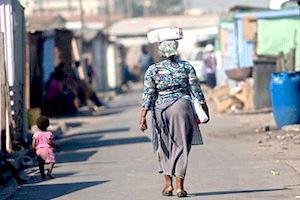Post-Apartheid Land Ownership Laws: Black Women’s Struggle Against Bias
Unintentionally, a rule passed in South Africa to address the racial inequities of apartheid has made it harder for Black women to own the homes where they were born and raised. Soweto resident Johanna Motlhamme, 74 years old, and her four children have been homeless since the sale of their home was made without their permission. Johanna has fought hard to get their house back.
Abolitionist policies that made it illegal for Black people to hold property in urban areas are the root cause of Motlhamme’s hardship. Black South Africans could only hold long-term leases during apartheid; complete property ownership was out of reach. Black leaseholders were granted the opportunity to buy their properties when the government adopted the Upgrading of Land Tenure Rights Act of 1991 after apartheid ended in 1994. Nevertheless, this rule had a serious defect: it granted property rights only to males, who were traditionally seen as the breadwinners of their households.
This rule, which had its origins in patriarchal values, prevented many women from being able to inherit property or even claim it as their own. The law failed to acknowledge Motlhamme’s claim, despite the fact that she and her husband were legally entitled to half of the home under their marriage contract. Her ex-husband ignored her rights as a co-owner and registered the house in his name in 2000.
Many Black families in South Africa’s metropolitan townships have comparable challenges, according to the Socio-Economic Rights Institute (SERI), a legal rights group. Their property rights are still unclear, and they fear for their homes even though apartheid is no longer in effect. Many women, like Motlhamme, are battling for their right to secure housing because of the law’s unforeseen repercussions.
Those fighting for affordable housing say the law’s failure to acknowledge women’s rights to own and inherit property is a direct outcome of patriarchal traditions. This perpetuates the inequity and instability that persisted in the post-apartheid period by denying ownership to women, mothers, and daughters.
Stories like Motlhamme’s serve as a sobering reminder that many Black families in South Africa continue to fight for housing justice and equity long after apartheid’s end. There are still a lot of women in our nation who are fighting for the right to own a house and secure tenure.

Published:


